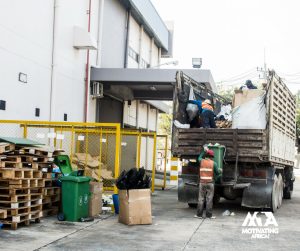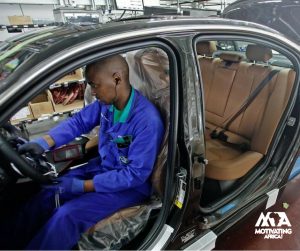Entrepreneurs can change the way we live and work. When successful, their revolutions improve our standard of living and often perceived as national assets. In addition to creating wealth from their entrepreneurial ventures, they also create jobs and the conditions for a flourishing society.
Africa as a continent, is ripe with amazing and lucrative business opportunities and listed below are 7 lucrative business opportunities in Africa entrepreneurs can do to earn some cash and help Africans live better lives;
1) Crowd farming
Across the world, agriculture is big business and most farmers are financially well-off. According to the United Nations, Africa’s agribusiness industry is expected to be worth $1 trillion by 2030. The continent has a huge domestic market, owns 60 percent of the world’s unused arable land, and has abundant labor resources, and a favorable climate in most parts. Still, Africa spends over $30 billion on food imports annually. If some entrepreneurs invest into the agricultural sector there would be an increase in the production of food in Africa. It will also, reduce the hefty fee on food import, provide more money for both the investors and the farmers, and by extension reduce the rate of unemployment. As the population in Africa doubles in the coming decades, the business opportunities in agribusiness space are likely to produce a group of millionaires.
2) Waste Management
Definitely not what you would want to do right? Yeah, well you might want to think again. For decades, waste has been a huge problem in Africa especially in urban areas – and this problem is overdue for a solution! Currently, the waste generated in Africa is usually burned, buried or thrown away. As a result, more than 80 percent of solid waste produced on the continent ends up in landfills or gets dumped in water bodies.
In South Africa, the solution appears to be to convert waste into animal feed.
AgriProtein is a business that grows maggots from waste collected from markets, households, and businesses. The maggots are processed into a highly nutritious protein supplement that substitutes fish meal in animal feed. The company has raised up to $30 million in funding.
In Ethiopia, the solution is to convert waste into electricity. There are other opportunities to recycle waste material to produce other usable household materials.
According to a report by Statista (2018), on the worldwide waste generation per capita in 2015; In the middle east and north Africa, waste generated in this region is 1.43 kilograms per day while in Sub-Sahara Africa, it’s 0.85 kilograms. Around the world, waste generation rates are rising. In 2012, the worlds’ cities generated 1.3 billion tons of solid waste per year, amounting to a footprint of 1.2 kilograms per person per day. With rapid population growth and urbanization, municipal waste generation is expected to rise to 2.2 billion tons by 2025.
3) Automobiles
The demand for transportation services in urban areas has shot up remarkably and this is due to the considerable number of migrants from rural areas. Currently, there are just about 44 vehicles per 1,000 people in Africa. This is a long way below the global average of 180, and lower than the motorization rates of other developing regions like Latin America, Oceania and the Middle East. Estimates suggest that vehicle sales on the continent could reach 10 million units per annum within the next 15 years. Little wonder automobile brands like Toyota, Volkswagen and Mercedes are digging into the African market by setting up assembly plants here in Africa. Excitingly, there’s been an emergence of “Made in Africa” automobiles. The MobiusII is a luxury SUV built in Kenya and is set to hit the market in 2018, claiming to be “affordable, no thrills, but robust and classy SUV that’s built for African roads.” As the continent’s population grow, so will the demand for automobiles, transportation services as well as other solutions in the entire supply chain. As an entrepreneur, you can position your offer at any point of the supply chain and still grow a very profitable business. Take time to research your location and the needs of the target audience in accordance with your skill and you will be proffering solutions that leads to the development of Africa.
4) Urban logistics
Currently, about 60 African cities have a population of over 1 million people. At the top of the pack are cities like Lagos (21 million), Kinshasa (10 million), and Cairo (9.5 million). And one of the biggest problems that appear to be worsening with the growth of Africa’s urban populations is congestion. Most cities on the continent do not yet have well-diversified transport systems, so getting around town can be a very frustrating endeavor. It’s a logistical nightmare that worries both consumers and businesses. We’re aware that the future of Africa is in the cities. And by 2030, up to half of the continent’s 1.4 billion people will be located in the cities. In Kenya, Twiga Foods uses technology to pool the orders of several urban retailers, saving them a trip to the market by delivering to their doorstep. It is now the largest distributor of a number of basic food staples in Kenya, and the startup raised $10.3 million last year. As we go into the future, more entrepreneurs will figure out ways to outsmart the complex problems and frustrating challenges of logistics in urban areas.
5) Healthcare Services
With poorly-funded public hospitals, and a significant brain drain of African doctors to countries outside the continent, waiting for the government to fix the continent’s healthcare sector will not work. Also, waiting for international “donor” funds (channeled through governments) will not work either. We have been doing the same thing for decades and little/nothing has changed.
With 25 percent of the global disease burden, a rapidly growing population, and a rising middle class, Africa’s healthcare market presents a huge opportunity. According to the IFC, Africa’s $21 billion healthcare market could double in size in a decade. Currently, a growing number of Africans are seeking medical help overseas, in places like India, Europe etcetera. This growth in outbound medical tourism costs Africans millions of dollars yearly. In Nigeria, Lifebank – a startup that develops smart ways to deliver critical blood supplies to hospitals in busy cities – raised $0.2 million to support and expand its operations.
Across the continent, more entrepreneurs are exploring creative alternatives to solving Africa’s significant healthcare problems. Undoubtedly their efforts will not only transform the continent’s healthcare industry but will unlock millions of job opportunities in the process.
6) Fintech
Only about 34 percent of adults in sub-Saharan Africa have bank accounts or access to formal financial services after more than 5 decades of banking in Africa. Obviously, the traditional model of banking is slow, inflexible and incapable of spreading financial access at the required pace Africa needs. However, with the spread of mobile phones and the Internet across Africa, entrepreneurs are leveraging technology to deepen financial access in ways the banks never have.
There are a wide range of opportunities that are opening up in Africa’s financial services space tackling; bill payments, bulk disbursement, and international remittances. In the area of overseas remittances for example, Africa loses more than $1.4 billion annually in charges alone.
7) Local Products for export
Africa spends billions of dollars on imports every year. This includes both food and non-food items. But beyond the traditional commodities – crude oil, minerals, cocoa, coffee, timber etc. What else of value can Africa actually export? It happens there are a lot of local products on the continent that have the potential to become global brands. The problem is, we often overlook them. But some entrepreneurs are now turning local African products into global brands and best-sellers. Nilotica and fonio are just two of many examples of several local African products that have global potential. And soon, more smart entrepreneurs will explore these products and transform them into international brands.
Africa is a continent that significantly rewards problem-solvers, and provides a rare opportunity in today’s world to make a lot of money, while doing a lot of good at the same time. It is evident that entrepreneurship holds the keys to Africa’s transformation; not global pity, and certainly not foreign aid.










1 comment